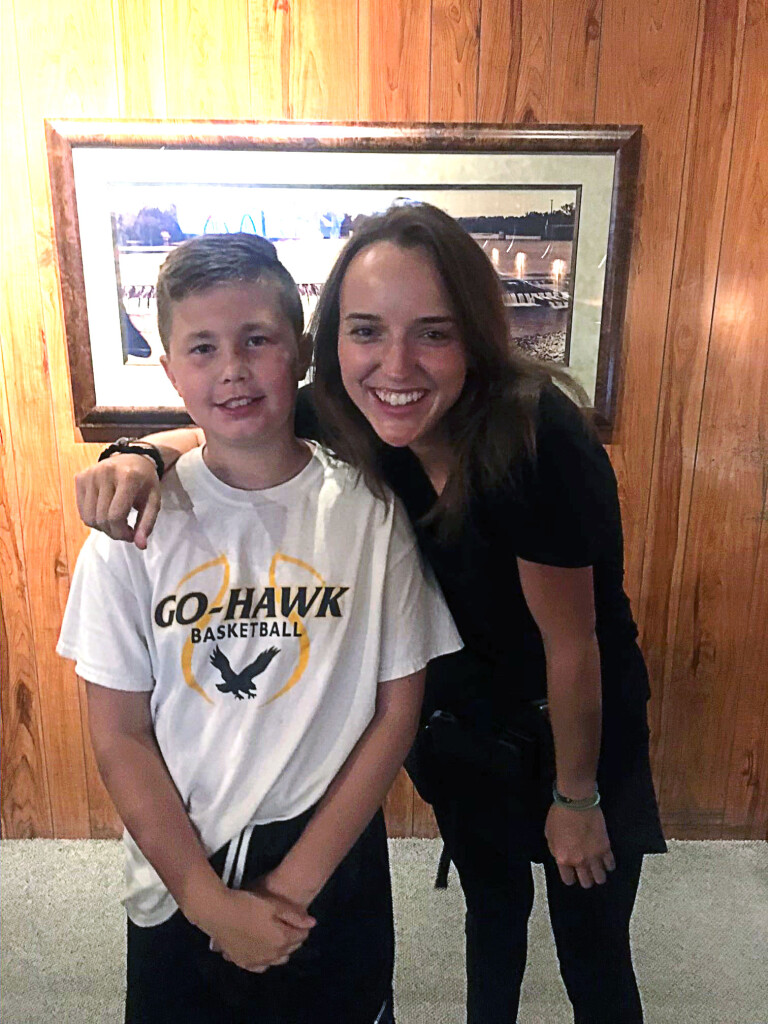By Emily Christensen | Submitted photo
Amber Pugh didn’t have any connection to Wartburg College when she picked up the phone more than five years ago and called the school’s education department. Her son, Kiefer, had just been diagnosed with dyslexia. Pugh had researched ways to help him learn to read and had landed on the Barton Reading & Spelling System.
But she needed someone else to help teach him.
“We are just too much alike,” Pugh said of her son, who is now in seventh grade and in the talented and gifted program at Waverly-Shell Rock Middle School. “I knew we had to have some great resources at Wartburg, so I made the call.”
Dr. Kelly Faga, associate professor of education at Wartburg, answered. She wasn’t confident she could find a student staying in town through the summer months, but she knew she had one strong lead — her daughter, Maddy ’18, then a sophomore majoring in education. Maddy already was working a couple of jobs but agreed to take on another. Though she knew working with Kiefer would be beneficial as she transitioned from college to her own classroom, she had no idea just how important the work or her relationship with Kiefer would be.


“Kief is probably one of my favorite humans on the planet. I tutored him that whole summer, and then Amber was able to get it so I could work with him one hour every day during the school day at St. Paul’s Lutheran School,” she said. “He was always so capable of learning how to read, he just needed someone to teach him differently. He is such a hard worker.”
The Barton system uses the alphabetic principle to teach reading and spelling by teaching concepts from the simplest to the most complex. Each new skill builds on previous skills learned, and the systematic approach doesn’t leave any learning gaps.
“It’s very scripted and great for kids like Kief who are struggling to learn to read in the traditional way. The whole first box focused only on letter sounds. Then in the second box we finally got the letter tiles to start building words,” she said. “The whole system is about being able to listen to the words, break up the words, and then spell the words. We got through the first book pretty quickly, so I figured it wouldn’t take us too long, but each book got bigger and bigger. I learned so much while I was teaching him. Even things like how vowels and consonants can be opened or closed. I don’t remember learning that in school.”
By the end, the two were learning about the influences of foreign languages on English and the Greek and Latin roots of words.
With each new box costing $300 or more, many families will sell one box (resale is always high) to help offset the cost of the next. Pugh, recognizing that the cost is a hardship for many families, opted instead to gift her Barton collection, valued at about $3,400, to Wartburg.
“I knew that would be the best thing for our community. I wanted to find a way to get these resources in the hands of students who had been identified, but otherwise wouldn’t have access to the tools they needed, since this isn’t used to teach reading in schools,” Pugh said.
The 10 boxes are available for Wartburg students to check out while they tutor a student. The college also is working with St. Paul’s Lutheran School in Waverly to identify students who may benefit from the additional intervention so they can be paired with a Wartburg student who can take them through the Barton system. Pugh also is a regular guest in one of Kelly Faga’s Wartburg classes, where she talks from personal experience about signs the pre-service teachers can watch for to let them know a student is struggling.
Maddy Faga said that even though she doesn’t use the entire Barton system in her class (she teaches fourth grade at Grant Ragan Elementary in Waukee), she has taken some tips and tricks from her tutoring days to help all readers better understand how to read and spell unknown words.
“Working with Kiefer added so much to my education. It was almost like another class for me,” she said. “If another student can get that gift because of Amber’s generosity, then that is amazing. And Kiefer taught me how to be a better teacher. He would get so frustrated when a word wasn’t following a rule, and we had to work through that together. Now I can use those techniques in my classroom.”
